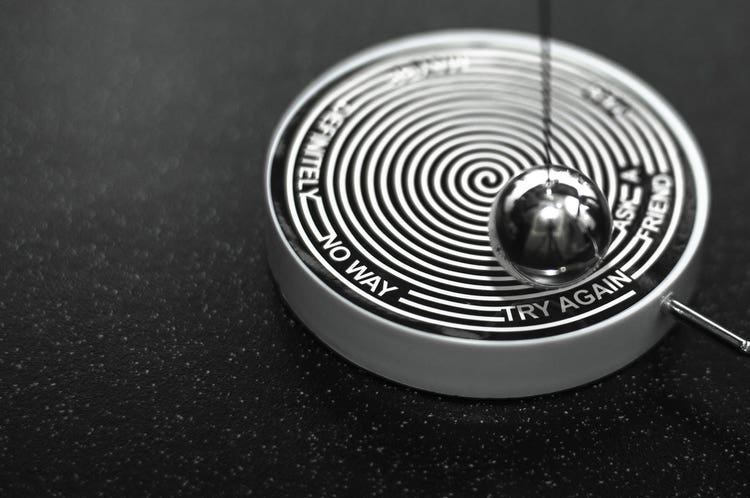Why Grownups Make the “Wrong” Choices

Video games at a friend’s house after school. Doing homework before dinner. We learn about making the right choice, as kids, and we’re often rewarded for it, or we expect to be.
Our choices can be more complicated as adults—like a run after work, vs. drinks with new team members. When we stop at the bakery instead of going for a run, we tell ourselves we need more discipline or greater willpower.
But choice is seldom a matter of training yourself to do the right thing. Jason Stella and Brian Grasso explore why it’s a question of awareness why you’re not choosing it.
Jason Stella (JS): Everyone wants to get more sleep, or eat better, or exercise more. We just can’t seem to get to it, even though we’re disciplined when it comes to work, being on time to appointments and so on. What’s going on?
Brian Grasso (BG): You know you want to lose weight, or to get off the blood pressure medication, or get ready for your dream vacation. You’re also surrounded by well-meaning messages, from your trainer’s advice to all those “sore, not sorry” and “just do it” affirmations on Facebook.
So what happens when you have a second glass of wine or binge-watch TV is that you flash on all those messages about making the right choice, and your “failure” to do so. That launches that negative story you tell yourself about how you never will do the right thing or reach your goal.
JS: How does that internal story turn into action—action that we don’t intend?
BG: When your unconscious inhibitors are in play and your fixed mindset is pretty certain you’ll never get to bed before midnight or you’ll never lose those five pounds, there are some pretty big hooks for those stories to connect with reality. For example, you believe that you have to check mail late at night, because that’s when your boss replies to all the email you sent during the day. Suddenly your extra hour of sleep is gone because you were obligated to do something else.
JS: That sounds like most of us. What’s your advice?
BG: What comes to mind are the airlines’ instructions: In an emergency, put your own oxygen mask on first, before you help someone else. It makes perfect sense that you have to help yourself first in order to be able to help others, but it feels selfish.
It can feel just as selfish to put your health ahead of work or friends or even family. First, you have to recognize and accept that you feel selfish. Otherwise that self-judgment becomes part of the subconscious story about why you can’t put yourself first.
Then, consider the worst that could happen if you did put yourself first. Usually that worst-case scenario it’s not as bad as you thought—or else it’s extremely unlikely to happen. The family won’t fall apart if you take that yoga class, and the boss is unlikely to call you out on that email you didn’t send until morning.
EXPLORING THE WORST CASE
These exercises help you understand the reasons you aren’t making the choices you want to make. When choices aren’t burdened with emotional baggage like the shame of “should have” or “failed,” they get easier to make.
- Journaling. Writing down everything, from what you’re thinking, to what you’re feeling emotionally and physically, is a way to begin to become aware of the subconscious stories and subjective memories that reinforce your beliefs and fixed mindset. Look for “usual suspects”—people, events, topics – that trigger those unconscious inhibitors and make it hard to make choices—even if it’s not clear why.
- Digging into the Worst-Case Scenario. We’re supposed to look on the bright side and be positive, but for most of us, that doesn’t reflect our sense of reality. In fact, it can be helpful to embrace and look more closely at what we believe will happen. Those worst-case scenarios are based on our unconscious inhibitors, and the Tripod Exercise is one way to look at them and find the “facts” are not as disastrous as you thought. The kids won’t starve if you take a class after work; if your spouse can’t cook, they’ll probably fix sandwiches or get takeout.